7 Productivity Tools for COVID-19 and Beyond
As the world battles to limit the damage caused by Covid-19, many of us find ourselves far from our usual routines. Looking after mental health and attending to the basic needs of our households in a safe way are of course highest on our agendas.
But for those who are itching to hack their productivity, here are 7 productivity tools that can help you make the most of your time and energy both now and in the future.
1. Note-taking: Evernote
An early leader in the digital note-taking space, Evernote is still one of the most popular choices. It supports a wide range of note types, including text, images, scanned documents, audio recording, sketches, checklists, and clipped web pages.
Powerful tools make organising and searching for notes easy, e.g. if you add a photo of a magazine ad to a note, you’ll later be able to find the note by simply search for a brand or product name that appeared on the image. Useful features for both professional and private use!
Other useful productivity tools in the category are Notion and Todoist.
2. Planning: Microsoft To Do
Microsoft’s To Do app – successor to the popular Wunderlist app – lets you capture and retrieve your lists easily across devices, keeping you organised wherever you are.
It’s also possible to set due dates and reminders, break large items into smaller steps, and collaborate in online groups – the latter makes it possible to assign tasks to different members of the group, which makes this handy for your private life too.
3. Mind mapping: Mindmeister
Mindmeister, a web-based app, is a mind mapping tool used by 14 million users. This handy tool, which can always for brainstorming, lets you capture your most creative ideas.
In times of crisis, visualizing your thoughts has become even more important than before in order to solve complex problems.
4. Researching: Google Alerts
Google Alerts lets you keep on top of the latest news or any other items you’re interested by compiling a sample of the results you would receive via a Google search, and sending you an email digest (in real-ish time or once a day/week).
Handy for watching out for positive or negative mentions of your business (or your competitors), finding new sites or publications to contribute content to, tracking key terms related to your industry to spot trends, and more.
Google Alerts can save you hours and is much more efficient than skimming news sites and doing manual searches. Configure as many alerts as you like, and refine them based on language, region and other parameters.
5. Time tracking: Toggl
It’s easy to underestimate the time we spend on tasks, and a simple time tracker like Toggl can be a real eye-opener that will help you plan better and make sure you’re not undercharging.
Toggl is incredibly easy to use, with no unnecessary distractions. The free version provides a clear view of the time you spend on different tasks and projects, with prompts to ignore idle time should you forget to stop the timer.
With the paid version, use it across a team to compare the amount of time people spend on tasks so you can find out what people are best at, add billable rates to check check you’re not undercharging for projects.
6. Time tracking: RescueTime
If you suspect that you’re spending too much time on social media or news sites, but are still somewhat in denial, RescueTime could be ones of those productivity tools you need. RescueTime runs securely in the background on your computer or device, and tracks the amount of time you spend on different sites or applications.
It then compiles a report of what you’ve been doing with your time. How you use the information and features is up to you – simply raise your awareness of the time you spend, set goals to encourage good behaviour, or alarms to warn you when you’ve gone over your allotted time.
7. Scheduling: Doodle
A golden oldie that dates back to the time Evernote was also born, Doodle is still the best way to avoid long email or messaging chains when trying to set up a meeting with several people.
With the free version, you can post an online calendar with possible meeting times. Anyone with the link can select the options that work for them. The paid version eliminates the ads and gives you access to some handy features like syncing doodles to your online calendar and emailing calendar invites to participants automatically.
Wrapping up
Finding the right mix of productivity tools is a personal challenge, so rather than simply trying them all, figure out first what it is you need/want to gain from a productivity app – perhaps its organisation, focus, habit-building, or something else. Start small, build up a toolbox that works for you, and you’ll reap the rewards.
We are all in this together.
Discover how our experienced consultants can help you optimise your marketing and sales activities.
Learn more


